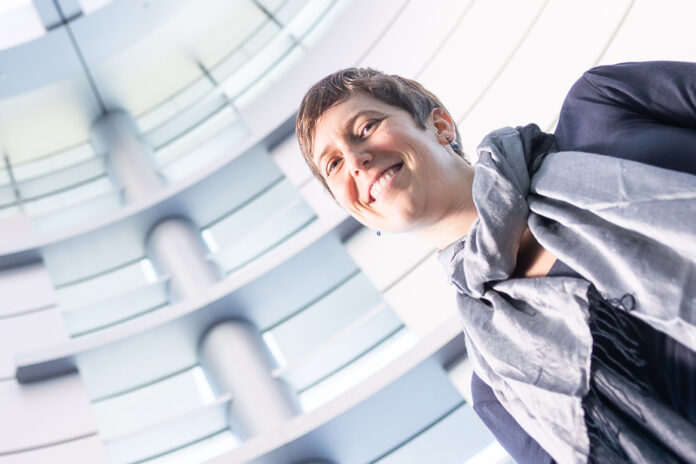To better study the Earth from space, the Canadian Space Agency, located in Longueuil, creates and sends observation satellites into space. Geneviève Gariépy, physics engineer, is head of the Arctic Observation Mission, whose objective is to design and deploy instruments to collect data on climate change in particular. She agreed to answer our questions.
I coordinate all Mission activities with the team at the agency (ASC), but also with our partner, Environment Canada, and with collaborators. I am involved in the design work of the four main instruments envisaged to provide better observations over the Arctic, measure greenhouse gas concentrations, observe gases that harm air quality and improve predictions of phenomena caused by electromagnetic radiation and charged particles from solar flares. I manage projects, so it’s very human work, but also very technical. I look at all the questions to be evaluated on the instruments and I am involved in all the small decisions that have to be made, but with a global point of view.
My work changes from day to day, week to week and month to month, depending on the phase of the project. Of course, I always have a lot of meetings, because we work as a multidisciplinary team. It’s impossible for one person to have all the knowledge needed to move forward, so you have to connect many people together, such as engineers, scientists, managers and policy analysts. I have to make sure everyone understands each other. We also work closely with industry. We need to be able to get our priorities right so that private companies can develop the technologies we need.
I did my bachelor’s degree in engineering physics at Polytechnique Montréal. There was a lot of development in physics in the early 20th century, for example in quantum, optics, photonics. Engineering physics encompasses all of that. The notions in optics that I learned during my baccalaureate still serve me. Then, I became an optics specialist. I did a master’s degree in physics at the University of Ottawa and a doctorate in physics in Scotland. In my studies, I developed an ability to attack complex problems for which we do not know if there is a solution. Having developed this confidence, this ability to take it step by step is very important in my work. I have been working for a year and before that I worked at ABB on optical Earth observation instruments: it was in this job that I acquired the technical knowledge that I need in my job today .
I have always been torn because on the one hand, I love optics, its math, its experiments. I’m really having fun working on this. But, on the other hand, I have strong environmental values and I didn’t see how I could link these two major areas of interest. It was when I landed by chance in the space domain that I understood the essential role of satellites in Earth observation. The work of my team allows us to better understand how the Earth works and thus, we can make more informed decisions to better manage changes.











